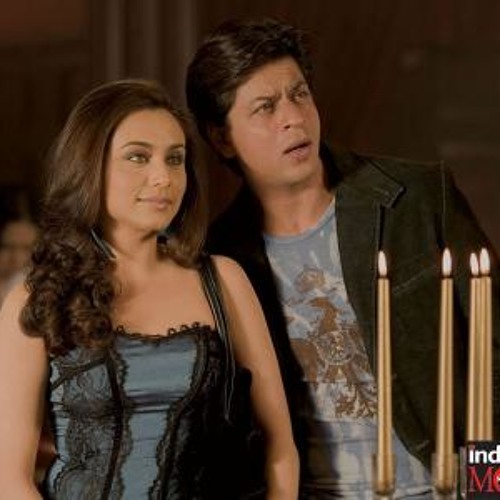
#KABHI ALVIDA NAA KEHNA SCENES FULL#
There’s no doubt that extramarital love stories would be full of pain and tough decisions, but frankly, I’m tired of seeing ‘other women’ bearing the cost for their actions. Rewatching KANK was a reminder that the trope of love outside marriage, for women at least, has not aged well, or aged at all! But then, Dirty Picture came out a full five years later in 2011, and the heroine, while bold and sexually confident, eventually had to be shown on her deathbed. Even her inability to have children seems to bear down heavier on her, as though it’s a punishment.Īgain, for 2006, maybe it was just enough that the ‘bad woman’ wasn’t a heavy drinker and smoker who eventually pays for her lifestyle with her life.
#KABHI ALVIDA NAA KEHNA SCENES MOVIE#
In stark contrast, Mukherji’s character, spends the last 40 minutes of the movie shedding tears almost non-stop, as though to atone for being the other woman. Self-possessed and exuding a steely dignity, Zinta is quiet, assessing and ultimately generous. It’s hard to root for a pair who seem to turn to each other and say, ‘Let’s be unhappy together forever.’ It would work if the movie were a satire, but Johar’s over-earnest tone and overdone attempts at poignancy needed much more to make this couple convincing. She seems to be nothing more than a receptacle for his constant griping and fury at the lack of fulfilment in his life. There’s not much, ironically, that binds Dev and Maya.

But for Dev and Maya, the most I felt was a mild annoyance. The banter between Amitabh Bachchan and Kirron Kher is warm and enjoyable the familiarity and friendship between Abhishek Bachchan and Mukherji, right till the end of their marriage and afterwards, feels genuine the scratchy, nails-on-a-chalkboard tension that punctuates Khan and Zinta’s every conversation hits the right nerves.

It’s hard to root for a pair who seem to turn to each other and say, ‘Let’s be unhappy together forever.’ But all the slow-motion walks and arms-open-wide shots, ironically, couldn’t convince me that Dev and Maya, the characters he and Rani play, needed to be together, against all odds. Not quite at the height of my teenage tendresse for SRK, but close. Ultimately, it turns into a love of sorts, a love that after several teary, dramatic turns, comes to fruition. Stuck in marriages they don’t want, drowning in their own bitterness, they turn to each other, ostensibly in a collaborative effort to save their respective marriages. And there were the two least likeable characters – the affair-havers themselves – played by Shah Rukh Khan and Rani Mukerji. There was Preity Zinta, a driven, successful career woman determined to make her marriage work.

There was Amitabh Bachchan as an elderly widower with a lusty zest for life. Let me be fair and say that in 2006, the film was a fairly bold step. And yet, when I’m watching it in 2021, far older and more cantankerous than I was when it first came out, the notion of the film being a missed opportunity continues to hold. Karan Johar’s Kabhi Alvida Naa Kehna, which came out 15 years ago, was supposed to be a fresh, contemporary take on marriage, infertility, love beyond age, and two wounded people finding comfort in each other that they could not find with their respective spouses. From The Bridges of Madison County to Arth and Silsila, there’s something about the yearning and secret intimacies of a romance outside marital strictures that I find hugely appealing.

I have an unholy love for extramarital love stories.


 0 kommentar(er)
0 kommentar(er)
